Wondering if you can find McDonald's in Iceland or other countries you're visiting? Check out this list.
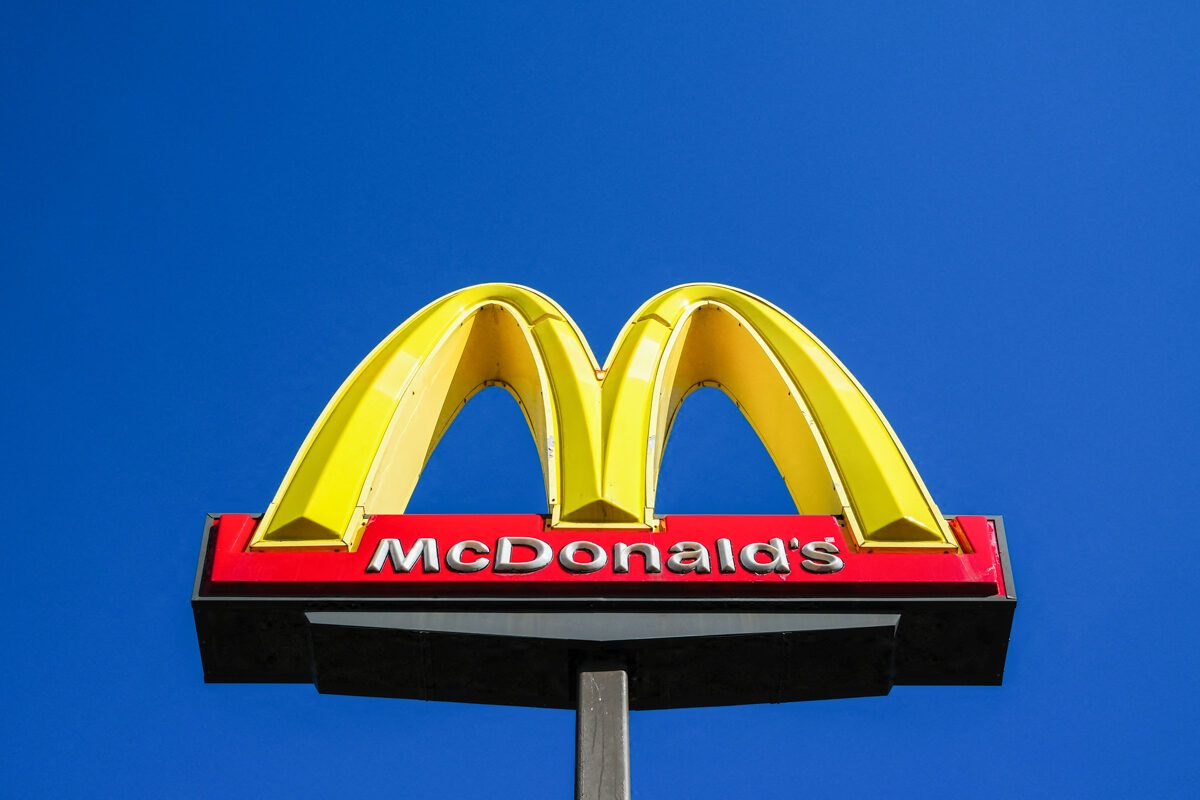
8 Places Around the World Where You Won’t Find McDonald’s


Iceland
McDonald’s Iceland is a thing of the past. The American burger joint opened in the country’s capital, Reykjavík, in 1993. But the 2007–2008 global financial crisis and Iceland’s resulting economic crash and collapse of the króna (Icelandic currency) drove up the costs of the imported ingredients required to run a McDonald’s franchise. “This made it challenging for McDonald’s to maintain profitability in the long term,” according to Stefánsdóttir, the CEO and co-owner of Hidden Iceland.
In late 2009, McDonald’s Iceland locations transitioned to operating under the name Metro, a fast-food restaurant offering a similar menu, with the addition of salads and other presumably healthier options, made with local ingredients. These days, Iceland’s economy is likely in a position to once again play host to McDonald’s restaurants, but local preferences, not to mention tourists’ preferences, may no longer be aligned.
“Icelanders have always been particularly proud of their locally sourced food and place great value on supporting domestic agriculture,” Stefánsdóttir says. “Over time, the demand for fresh, locally produced ingredients in Iceland has only grown, making global fast-food chains like McDonald’s less appealing to consumers who prioritize quality and sustainability.”
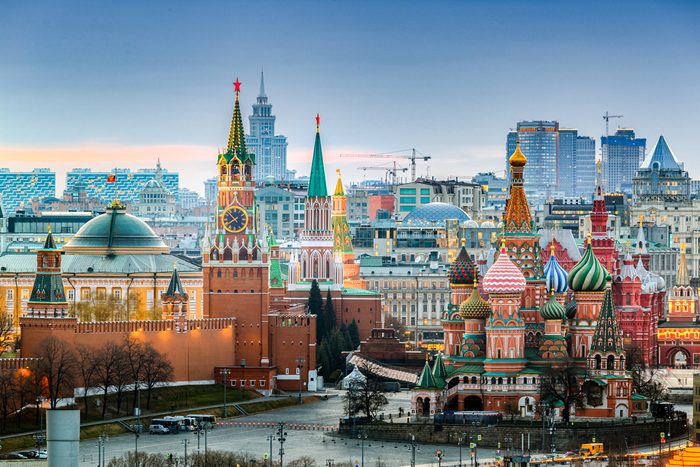
Russia
McDonald’s planted the seed for a relationship with Russia at the 1976 Olympics in Canada, where the brand offered up their Big Mac Bus to transport Russian athletes around the Olympic Village. That gesture sparked negotiations that led to the eventual opening—14 years later—of Russia’s first McDonald’s in Moscow. After decades of Cold War tension, this momentous occasion was about much more than fast food; it demonstrated a warming relationship between the two countries. And for more than 30 years after that, the American burger outlet operated successfully in Russia.
But in March 2022, McDonald’s paused its operations there due to the Russia-Ukraine war, ultimately exiting the market that May. The restaurants were rebranded as “Vkusno & Tochka” (meaning, “Tasty & That’s It”), a change that residents seemed to embrace, if the notable growth and 2 million people served per day are any indication.
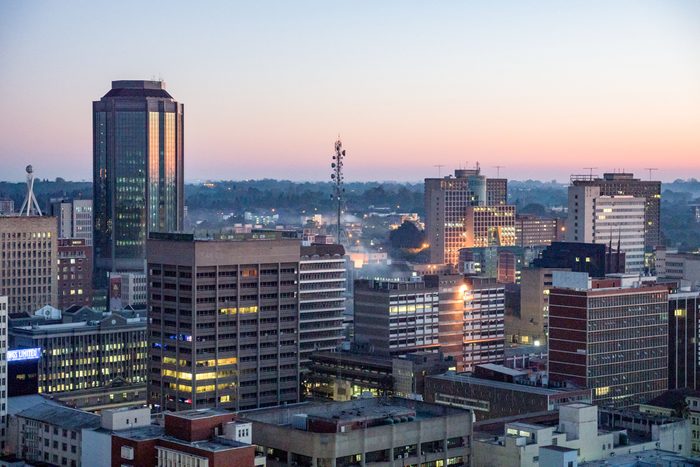
Zimbabwe
McDonald’s has set up shop in just four countries on the entire African continent. Zimbabwe isn’t one of them, though it came pretty close. “High operational costs, unreliable infrastructure and weak purchasing power in many African countries may be putting off some food chains from establishing in Africa,” Belay says. There were plans for Mickey D’s to move into Zimbabwe in 2000, but an economic collapse there caused the fast-food giant to back out.
While an economic crisis is certainly not something to celebrate, the failure of a fast-food joint to launch could prove beneficial over time. “The spread of junk foods and international fast-food chains in African cities is eroding local culture and cuisine. These chains are pushing standardized menus that ignore our culinary traditions, threatening to replace diverse, indigenous food practices with uniform, unhealthy diets,” Belay says. “This shift is fueling a public-health crisis, with rising obesity, diabetes and other diseases, while undermining local food vendors and small family businesses.”
Given that very few African countries currently have specific measures to prevent international food chains from entering the market, it is still possible for McDonald’s and others to set up shop in Zimbabwe and elsewhere on the continent. To combat this, Belay believes policies must be implemented to protect traditional food systems, celebrate local cuisines and support small food vendors. “Our food is not just what we eat—it’s who we are,” he says. “The future of Africa’s food systems must remain in our hands, not in the hands of corporations.”
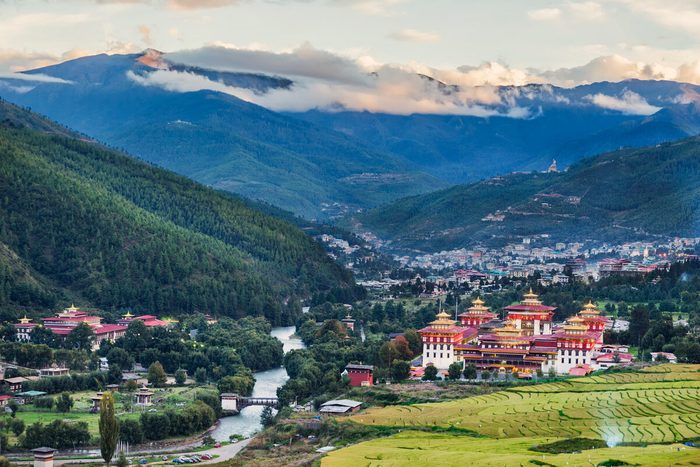
Bhutan
If you’re fortunate enough to visit the Kingdom of Bhutan, you won’t find any Golden Arches disrupting the majestic mountains. Although there are no specific written rules preventing McDonald’s from entering the market, there are likely several factors at play, including the small population size, the challenges and costs of importing ingredients to the edge of the Himalayas, and the issues around meat consumption in this Buddhist country. A government officer we spoke with confirmed that McDonald’s proposals were not approved in the past mainly due to health concerns.
Bhutan also expects its citizens to protect local culture. In fact, the constitution includes this clause: “A Bhutanese citizen shall have the duty to preserve, protect and respect the environment, culture and heritage of the nation.” It seems a foreign fast-food chain whose bestsellers include oil-drenched fries and stacks of meat slathered in a mayo-based sauce isn’t well aligned.
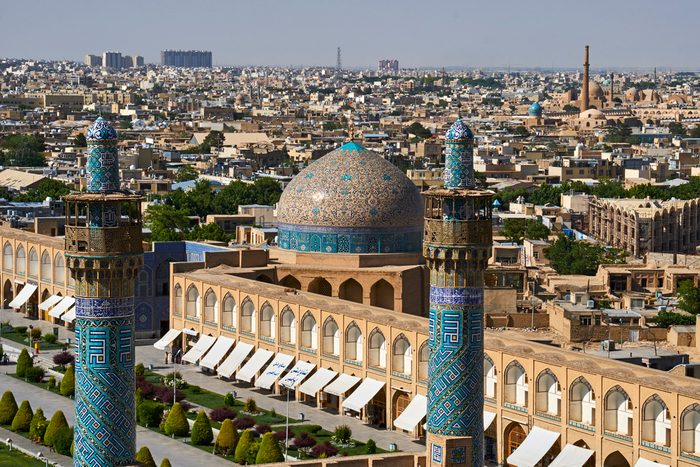
Iran
It’s been 45 years since an authentic McDonald’s meal was served in Iran. Following the Iranian Revolution in 1979, Western brands got the boot. McDonald’s isn’t technically banned here today, but the volatile relationship between the U.S. and Iran and the local affinity for Iranian-owned restaurants are likely among the reasons McDonald’s hasn’t reopened.
Restaurant chains consider many factors when deciding whether or not to open a franchise in a specific country (from population density to geopolitical factors), and for a number of reasons, Ronald McDonald and Iran are not a match, at least for now. But Iranians and visitors to the country can get their fast-food fix at locally owned, knockoff restaurants—such as Mash Donald’s, Pizza Hat and ZFC—that serve similar menu items and utilize almost identical branding to their American counterparts. If you’re searching for the Iranian version of a Big Mac, you won’t have any trouble spotting Mash Donald’s; just look for the glowing Golden Arches.
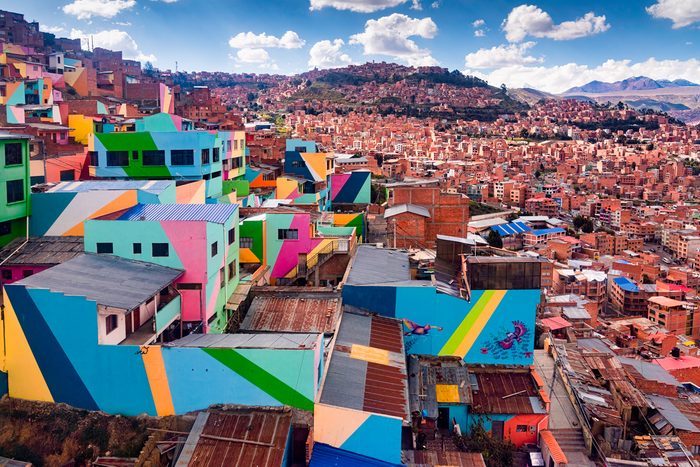
Bolivia
Despite a warm welcome, with customers willing to wait in long lines to bite into a Big Mac when the first McDonald’s franchise opened in Bolivia in 1997, the novelty quickly wore off. Sales dipped, and after just five years, Bolivia said adiós to all eight McDonald’s locations in the country.
It seems Bolivia never really developed an appetite for the American restaurant chain. And while some celebrated McDonald’s closure as symbolic of Bolivia’s outright rejection of fast food, there’s much more to the story. Bolivia already had its own fast food, including items like burgers and salteña, a type of Bolivian empanada that McDonald’s tried but failed to recreate.
According to the news outlet El Cronista, one of the major stumbling blocks to McDonald’s success in Bolivia was the cost, with the cheapest McDonald’s meal priced at more than three times the cost of lunch from a local vendor. In a region where thousands of varieties of native potatoes originated, perhaps overpriced McDonald’s standard potatoes never really stood a chance.
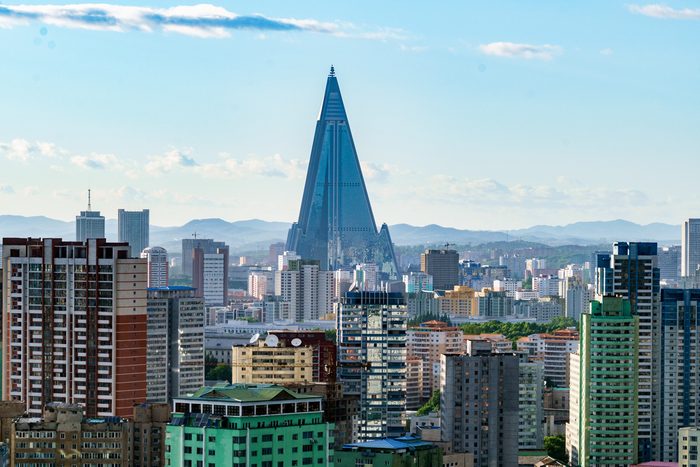
North Korea
There is no known North Korean law preventing McDonald’s from operating there, and it’s even been reported that Kim Jong Un would allow a “Western hamburger franchise” to open in the capital city. But the totalitarian state’s repressive climate, widespread starvation and anti-American sentiment don’t really jive with the brand’s Happy Meal vibes. The U.S. Department of State considers North Korea a “Level 4: Do Not Travel” due to the risk of wrongful arrest and long-term detention of Americans, and U.S. passports are invalid for travel to North Korea (with very limited exceptions made under the authority of the Secretary of State).
Despite the obviously unfriendly relationship between the U.S. and North Korea, apparently some North Koreans have managed to sample the McGoodies. According to the Telegraph, elite members of the North Korean government have had McDonald’s menu items flown in from China for personal consumption.
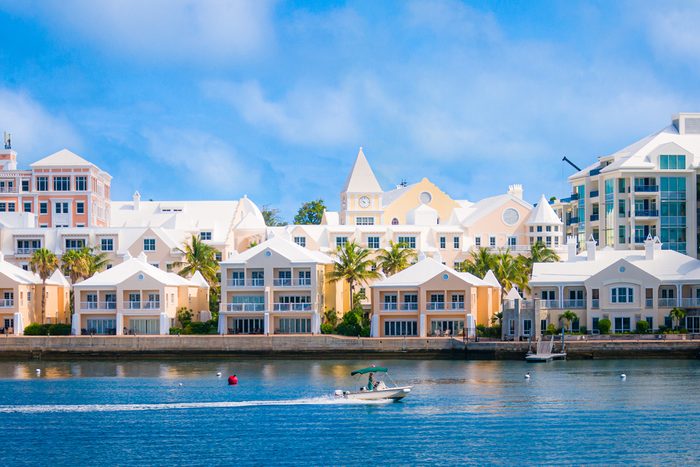
Bermuda
This is the one place that officially banned McDonald’s. Bermuda’s Foreign Restaurants Act of 1977 has prevented international fast-food chains from staking claim to a slice of paradise. Well, mostly. McDonald’s finagled a way in through a loophole on a U.S. Naval base in 1985. The base was considered U.S. territory, so the foreign burger joint was able to legally open and bask in the Bermuda sun for about 10 years. But when the military base closed in 1995, good ol’ Ronald McDonald was forced to pack up and ship out too.
The McDonald’s saga didn’t end there. After a former premier tried to incorporate a McDonald’s franchise under his company in 1995, it sparked an outcry, and the Prohibited Restaurants Act of 1997 was introduced, criminalizing the operation of foreign restaurants in Bermuda. There was an appeal and a drawn-out court battle, but ultimately, Big Macs were banned from Bermuda. Today, the only foreign restaurant you’ll find in Bermuda is a single KFC location that was opened in 1970 and was therefore allowed to remain after the original 1977 law took effect.
About the experts
|
Why trust us
Reader’s Digest has published hundreds of travel stories that help readers explore the world safely, easily and affordably. We regularly cover topics such as the best places to visit (and the best times to visit them), tips and tricks to zoom through airport security, flight-attendant secrets, hotel-room hacks and more. We’re committed to producing high-quality content by writers with expertise and experience in their field in consultation with relevant, qualified experts. We rely on reputable primary sources, including government and professional organizations and academic institutions as well as our writers’ personal experiences where appropriate. For this piece on McDonald’s Iceland and other places you won’t find the Golden Arches, Sunny Fitzgerald tapped her experience as a travel and lifestyle journalist. We verify all facts and data, back them with credible sourcing and revisit them over time to ensure they remain accurate and up to date. Read more about our team, our contributors and our editorial policies.
Sources:
- Aaron Allen, global restaurant consultant at Aaron Allen & Associates Global Restaurant Consultants; email interview, December 2024
- Dagný Björg Stefánsdóttir, CEO and co-owner of Hidden Iceland; email interview, December 2024
- Million Belay, member of the International Panel of Experts for Sustainable Food Systems (IPES-Food) and coordinator of the Alliance for Food Sovereignty in Africa (AFSA); email interview, December 2024
- McDonald’s: “Where we operate”
- Mahmood Khan and Maryam Khan: “‘I’m Lovin’ It’—Around the World: A case study of McDonald’s ‘Glocalization'”
- The Economist: “The Big Mac index”
- El Cronista: “Por qué fracasó McDonalds en Bolivia: historia de un cierre anunciado” (“Why McDonalds failed in Bolivia: the story of a closure that was announced”)
- CNBC: “Why McDonald’s failed in Bolivia”
- NBC News: “CIA report says North Korea won’t denuclearize, but might open a burger joint”
- Bermuda Laws Online: “The Prohibited Restaurant Act 1997”




















